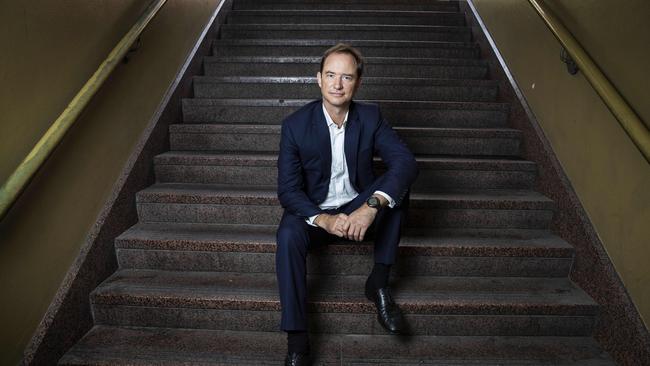Interest-free rorts ‘need regulating’
RateSetter says sections of the interest-free industry are “a rort” amid estimates consumers are being slugged $100m a year.

RateSetter chief Daniel Foggo has labelled sections of the interest-free finance industry “a rort” due to opaque fees and said some consumers were unknowingly getting hit with higher prices for using “buy now, pay later” platforms.
RateSetter, a peer-to-peer lender that connects borrowers and investors, believes last week’s Senate economics references committee report on credit and financial services missed an opportunity to address the issue of hidden price hikes, which it estimates costs consumers $100 million a year.
“This is all about secret charges, which is not upfront and is not honest. There is actually a huge amount of harm to the consumer,” Mr Foggo told The Australian.
RateSetter sent two letters to the Senate committee citing its research which gauged prices at 20 sellers of solar panels and batteries. The research tracked any differences depending on whether consumers used cash or opted for a buy now pay later platform.
It found a price differential of 10 per cent to 51 per cent above the cash price, and an average hike of 26 per cent, as the sellers sought to recoup buy now pay later costs.
“RateSetter believes this rort needs to end,” Mr Foggo said, calling on the government and the Australian Securities & Investments Commission to “put an end to price inflation” where goods are sold with interest-free finance.
The Labor Party-controlled Senate committee’s report recommended tighter regulation, including that the buy now pay later industry is covered by ASIC’s product intervention powers; that the sector considers consumers’ financial situations in granting credit; and works to develop an industry code of practice.
But the committee stopped short of recommending operators of those platforms, such as Afterpay, Zip and Brighte, be bound by responsible lending rules which entail more detailed credit checks.
Chief of solar and battery finance platform Brighte Katherine McConnell supported the Senate report and said the company’s vendor agreement stipulated they must offer one price to customers.
“We have seen several vendors where feedback from customers or our monitoring program has identified different pricing and Brighte’s risk and compliance team has immediately suspended the vendor,” she said. Brighte then investigated the matter and terminated the vendor if that behaviour was proved.
Ms McConnell said, though, that consumers often tried to negotiate on price across large purchases.
“In all sectors, consumers can negotiate a better price,” she said.
The sector has captured the attention of regulators given its huge growth in recent years.
A report by ASIC in November said since 2015-16 there had been a five-fold surge in the use of buy now pay later platforms to more than 2 million consumers.
McLean Roche Consulting’s Grant Halverson, a former Citibank and Diners Club executive, said the industry levied a range of fees and charges on consumers and vendors and was far less regulated than the credit card sector, leaving it open to poor practices.
“The regulators have to get their head around it that these people are lending money,” he said.
“People will find the weakest link and push through.”
ASIC, which also didn’t advocate sweeping regulation of the sector, in its report said it was “considering the legal position” of situations where vendors inflated the cost of goods if consumers were using buy now pay later platforms.
The regulator said for lower priced products, consumers were not paying more, but cited anecdotal evidence of merchants sometimes charging more on buy now pay later purchases of more than $2000.
“These higher prices can be misleading to consumers if they are not disclosed,” ASIC said.
An executive of a large bank, who declined to be named, said the cost of buy now pay later platforms would either be borne by a retailer’s shareholders or customers.
Product vendors are typically charged a percentage of the purchase price as a fee to access the buy now pay later platform.
Some levy as much as 4 per cent.




To join the conversation, please log in. Don't have an account? Register
Join the conversation, you are commenting as Logout